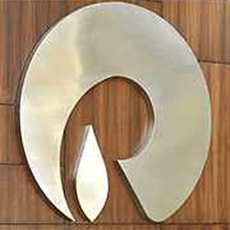 The Oil Ministry has postponed a kick-off meeting scheduled for CAG to begin audit of Reliance Industries' KG-D6 spending, even as it continues to withhold approvals to the company's investment proposals.
The Oil Ministry has postponed a kick-off meeting scheduled for CAG to begin audit of Reliance Industries' KG-D6 spending, even as it continues to withhold approvals to the company's investment proposals.
The Comptroller and Auditor General of India had called an Entry Conference with RIL and the Oil Ministry on Wednesday to begin its second round of audit that is to cover RIL's spending on KG-D6 gas fields during 2008-09 to 2011-12.
But the ministry on October 29 wrote letters calling off the October 31 meeting, sources privy to the development said.
The meeting, they said, was called-off due to differences over the nature and scope of audit to be conducted by CAG.
RIL has sought written assurance that CAG scrutiny would be an 'audit of accounting books and records' as provided under the Production Sharing Contract and that the company would not be "required to provide documents, information or any clarification of matters which go beyond scope of audit under Section 1.9 of the Accounting Procedure of the PSC."
Also, it wants the audit to be carried at its premises and audit report be submitted to the Oil Ministry, as provided under PSC, and not to the Parliament.
The ministry, however, wants RIL to give CAG 'unfettered access to account books' and pending that it has not approved the company's investment proposals including annual budget for past three years.
Sources said the kick-off meeting was postponed so as to resolve these differences.
The Ministry on October 23 written to RIL saying CAG would not do a performance audit of the company and that 'all the government nominees' on the KG-D6 block oversight panel have 'already approved' to all the development proposals made by RIL.
Sources, however, said the resolution approving annual capital expenditure on the KG-D6 block for 2010-11, 2011-12 and 2012-13 fiscal have not been signed yet.
While the Management Committee of KG-D6 block on August 7 approved annual capex plans pending for past three years, the resolution had not been signed.
These capex included those on well interventions to reverse the trend of falling gas output.
Pending
All these investments, RIL says, are necessary to reverse drop in output at the fields.
Also, at least three discoveries RIL has made in the block had not been declared commercial, a step necessary to begin production from them.
Sources said the investment approvals withheld include $805 million RIL already spent in 2010-11 and another $532 million invested in 2011-12.
A budget of $1.096 billion for current fiscal is also pending approval, sources added.
Gas production from Dhirubhai-1 and 3, the first two of the 18 discoveries that have been put on production, started declining from a plateau level of about 55 million standard cubic meters per day in August 2010. It is currently around 20 mmscmd.
Six out of the 18 wells on the field have been shut because of high water and sand ingress.
KG-D6 is currently producing around 26 mmscmd after including output from the MA field.
Sources said the Ministry on October 23 wrote to RIL saying, ". . .the proposed audit would be under Section 1.9 of the Accounting Procedure of the Production Sharing Contract, and not a performance audit of the operator."
On the same day, the ministry also wrote to Principal Director of Audit (Economic & Service Ministries), CAG stating that 'subject to certain conditions, RIL has agreed for an audit under Sector 1.9 of Accounting Procedure to the PSC by CAG and to cooperate with such audit without prejudice to any of their rights and contentions."
RIL had stated that it was ready for a CAG audit if done under the PSC which provides for checking of the contractor's accounts in order to verify the charges and credits but not questioning efficacies of processes or technology used in the complex deepsea operations.
The company last month had stated that said CAG's 2009 audit, which it had agreed to as a one-time exception, turned out to be a 'performance' audit which was contrary to the provisions of the PSC.
The CAG had in its first round of audit questioned the 'reasonableness' of costs incurred in the gas field development and said the government should revisit the profit sharing mechanism.










